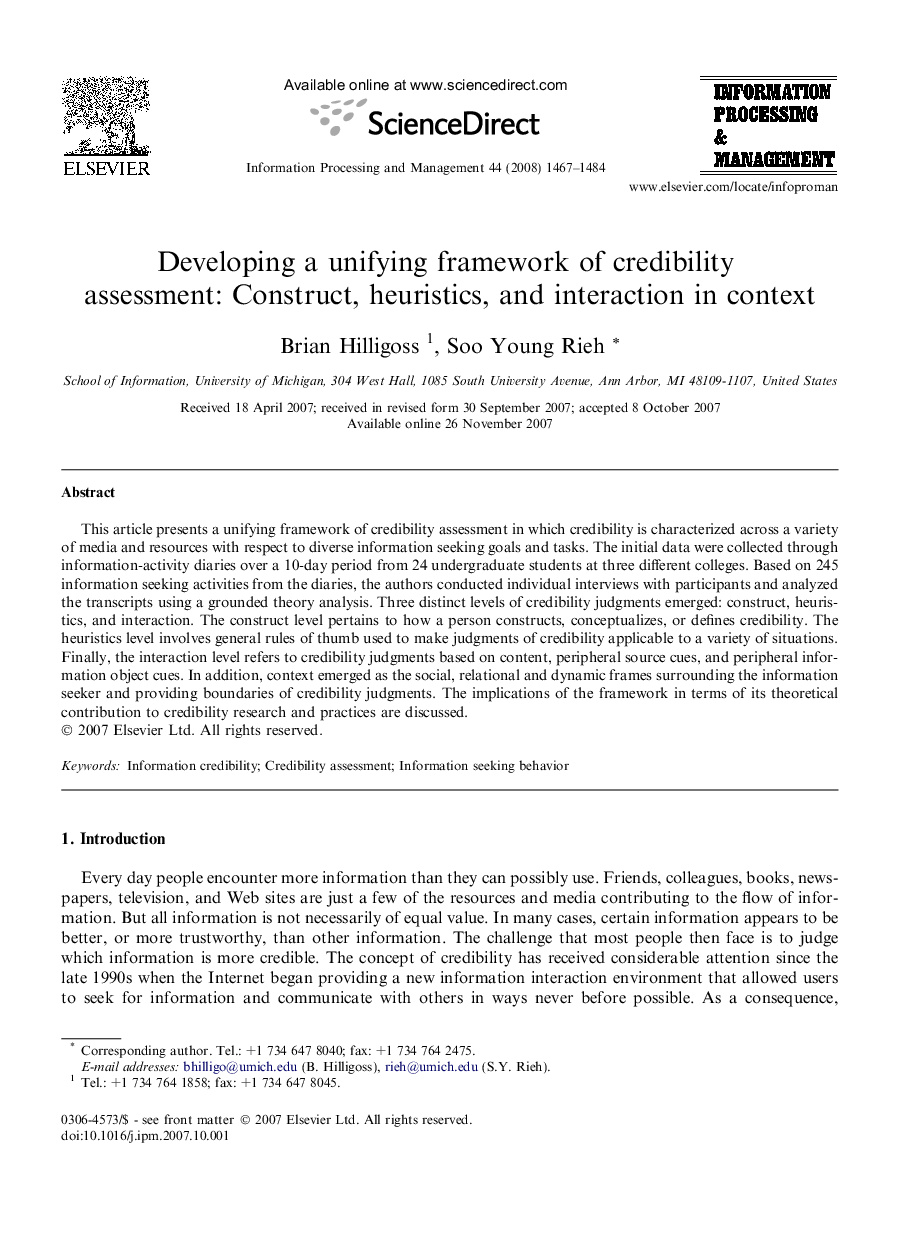| Article ID | Journal | Published Year | Pages | File Type |
|---|---|---|---|---|
| 515736 | Information Processing & Management | 2008 | 18 Pages |
This article presents a unifying framework of credibility assessment in which credibility is characterized across a variety of media and resources with respect to diverse information seeking goals and tasks. The initial data were collected through information-activity diaries over a 10-day period from 24 undergraduate students at three different colleges. Based on 245 information seeking activities from the diaries, the authors conducted individual interviews with participants and analyzed the transcripts using a grounded theory analysis. Three distinct levels of credibility judgments emerged: construct, heuristics, and interaction. The construct level pertains to how a person constructs, conceptualizes, or defines credibility. The heuristics level involves general rules of thumb used to make judgments of credibility applicable to a variety of situations. Finally, the interaction level refers to credibility judgments based on content, peripheral source cues, and peripheral information object cues. In addition, context emerged as the social, relational and dynamic frames surrounding the information seeker and providing boundaries of credibility judgments. The implications of the framework in terms of its theoretical contribution to credibility research and practices are discussed.
